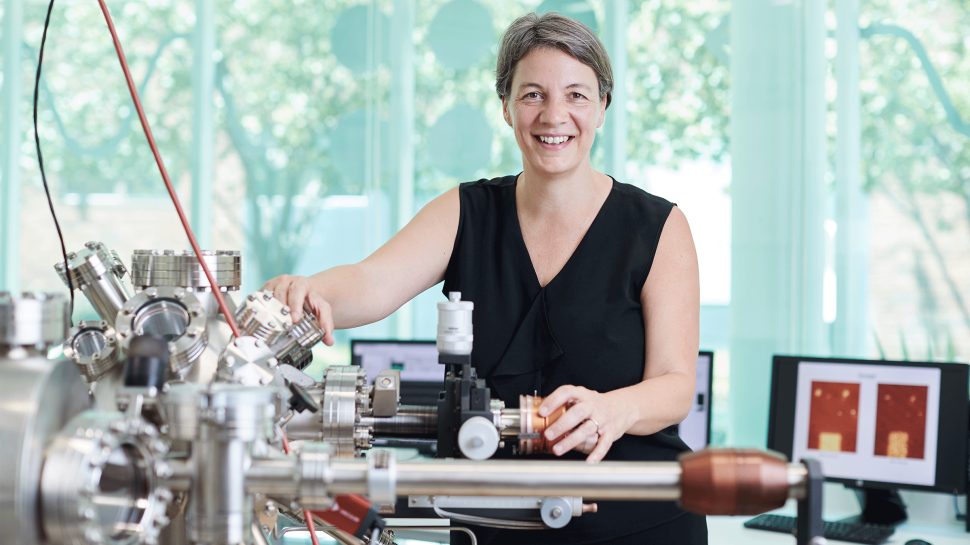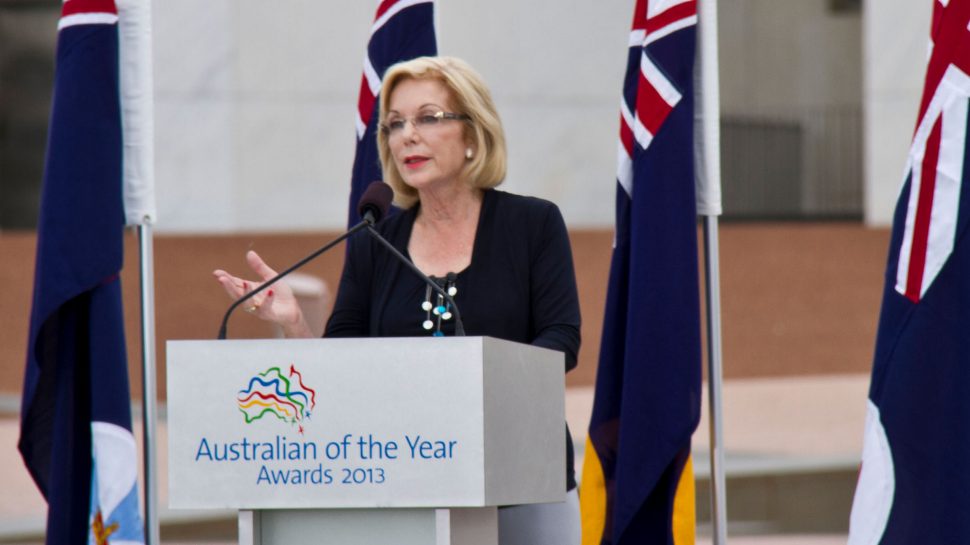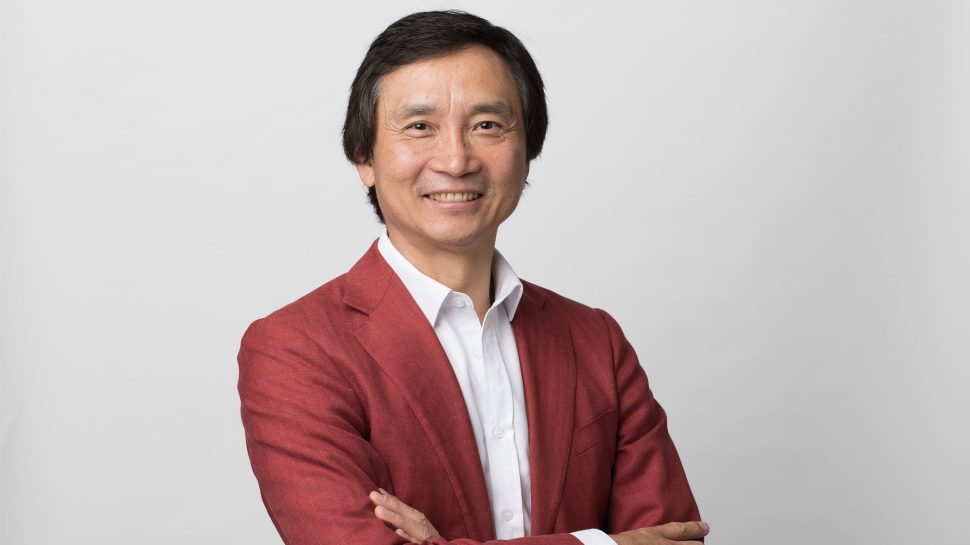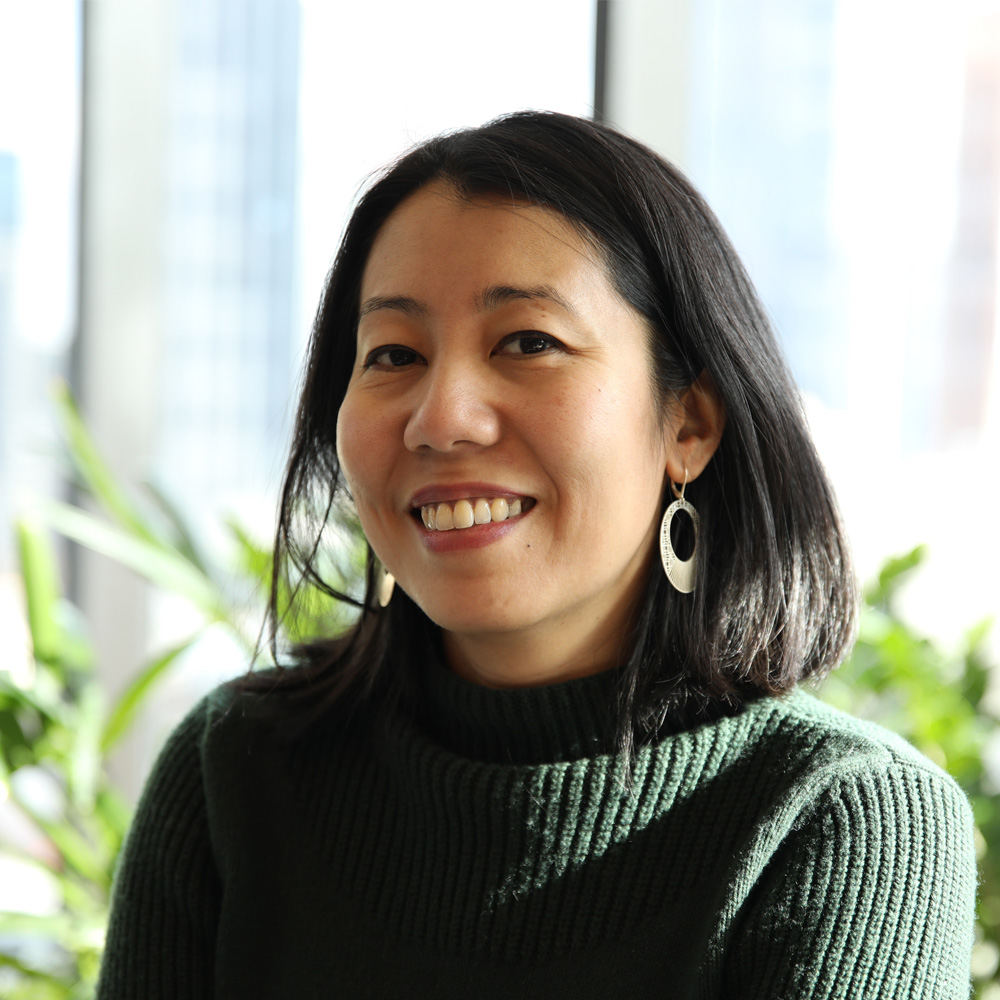Michelle Simmons AO: Leading Australia in the race to build the world’s first quantum computer
Professor Michelle Simmons is one of the world’s top scientists and currently on the biggest scientific mission of her life – building a quantum computer. As part of our Inspiring Australians series, Michelle talks about the future of science in Australia, the value of doing hard things and being named 2018 Australian of the Year.
It may be a while yet before Australians can power on a quantum computer. But if Professor Michelle Simmons has her way, that day is a matter of time rather than a question of possibility.
Michelle is one of the most brilliant scientific minds in the world. And now, that mind is set on building a quantum computer capable of solving problems in minutes that would otherwise take thousands of years. Such a breakthrough could revolutionise drug design, weather forecasting, self-driving vehicles and so much more.
“Australia is part of a global race to build a quantum computer,” she says. “Our advantage is that we got into this field at the very beginning in the 2000s. We have multiple teams and world-leading technology. There’s really no better place to do quantum computing than in this country.”
And right now, Australia is leading that race to build it in silicon, thanks to Michelle and her team. Born in London, Michelle arrived in Australia in 1999 after being offered a Australian Research Council QEII Fellowship. Before long, she had helped transform UNSW Sydney into a world leader in advanced computer systems, pioneering a globally unique approach to build computing devices out of individual atoms.
In 2012, Michelle and her team created the world’s first transistor made from a single atom, along with the world’s thinnest wires. Since then they have achieved a whole string of landmark discoveries in the quantum computing field including the fastest operation, most stable quantum bits in silicon and the exclusive ability to engineer atomically precise transitors in 3D. Today she’s a Professor of Physics at UNSW Sydney, founder of Silicon Quantum Computing and director at the Centre of Excellence for Quantum Computation and Communication Technology (CQC2T).
But Michelle’s dream doesn’t stop at a quantum computer. She says, “I also want to build a quantum industry that will put Australia at the forefront of this transformational technology,” she says. “An industry that is so exciting and challenging will make young people want to stay in Australia to do some really complex, difficult but fun things.”
The words ‘complex’, ‘difficult’ and ‘fun’ are rarely used together but Michelle firmly believes in the value of doing the hard things for the greatest reward.
“If you push the frontiers of science and technology, the things you create will be new, things that no-one has discovered before and it will always push you outside your comfort zone. The more familiar you get with this, with tackling difficult challenges, the bigger the reward when you succeed. The more risk you take, the better it feels.
“Information is easy to find these days with the risk that everyone can believe they're an expert even with a shallow level of knowledge. If you really want to create anything useful or unique, then deep knowledge is essential. So I'm keen for people to struggle with hard problems and build resilience that way.
“Being a scientist is a life of learning, understanding, determination and focus. There are new challenges every day and you have to understand why something isn’t working in order to fix it. That’s a beautiful process. And you can only do new things if you're constantly failing, learning and discovering.”

The power of a collaborative team
When it comes to doing hard things, Michelle says that technology driven science and engineering are at the top of that list for the continuous challenges they bring. But over years of working through those challenges, she’s realised that all her solutions had one common denominator – how well a team worked together.
When Michelle made improving team dynamics a key part of her problem-solving approach, she also stumbled on a new passion. Her ability to building strong, collaborative teams, she says, is among the core reasons of her success.
“A characteristic of a good team is one in which each individual recognises their own strengths and weaknesses, and understands that their success depends on their ability to work effectively and collaborate with others.
“We encourage personality tests and discussions around how each personality can work alongside others. The team’s success really depends on each individual’s success, and vice versa. Being part of a team or a collective also helps during the tough times because you’re all in it together.”
Outside her lab, this perspective naturally extends to her community which Michelle says is a fundamentally important part of life. “When you’re trying to achieve anything in life, feeling like you’re part of your community is fantastic.”
“We have a community of scientists from all over the world and we’ve formed deep relationships with them over many years. This sense of community allows you to do things that you couldn't do alone.”
Michelle adds that being part of a community also involves nurturing the future. Her favourite day of the year is the "Quantum Computing open day" where she opens up her laboratories to primary and secondary school children, which gives her and her team the opportunity to show young children the “fantastic world” they could be part of.
“Putting eight-year-olds in little cleanroom suits and bringing them through our labs is something that I love doing every year!”
The future of quantum computing in Australia
In 2018, Michelle was named Australian of the Year for her dedication to quantum science, and for being an evangelist for Australian scientific research and a role model to young scientists. She says the “terrific honour” is like nothing she has ever experienced before or since.
“The Australian of the Year award celebrates people that do completely different things across Australia, but it also celebrates a sense of community and that's what I love about it.
“Receiving the award also made the rest of the world go, "wow, those Australians celebrate their quantum physicists - why isn’t it done elsewhere?" It shifted the global view on scientists, particularly those in the hard sciences. The award got a lot of global recognition, which reflected really well on Australia.”
This recognition is why Michelle is urging young people in Australia to be creators not just the users of technology. She predicts the future will open more technically skilled jobs placing a higher value on scientists and engineers in this space.
“The top required skill is, of course maths - along with either physics, engineering, computing or coding. If you can also do statistics, you'll be unique because not many people do this. Other fantastic skills to have are creativity, design and knowing how to build something with your hands.
“One of the things I've learned throughout my career is the value of learning lots of different skills not necessarily related to science. Every individual building their own toolkit of skills can lead them to new opportunities. When you find something you’re interested in, try to master it at a level where it's useful for you and then see what doors open to you.”
As Australia moves forward in the field of science, engineering and technology, Michelle says the key challenge will be understanding how to create industries and economic value from this expertise.
“There are handfuls of individuals who have done that incredibly well but as a country, we haven’t nailed this out yet. We need a cultural shift. We need to stop thinking that we’re the underdog and instead take pride in the fact that we lead a lot of these fields internationally.
“We’re already attracting a lot of fantastic talent from overseas who want to work here. As I said before, there’s no better place to do quantum computing than in Australia.”
Australia Post is category sponsor of the Australian of the Year Award. We’re proud to partner with the National Australia Day Council and showcase the inspiring stories of remarkable everyday Australians.
Here's your chance to recognise someone who's making a real difference in your community. Nominate them today for the 2022 Australian of the Year Award.


